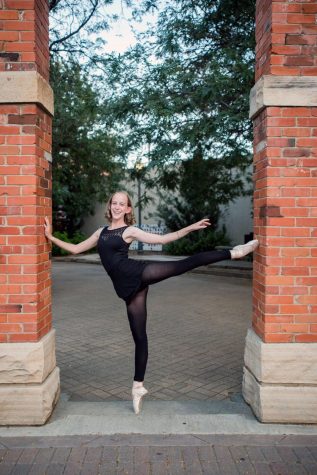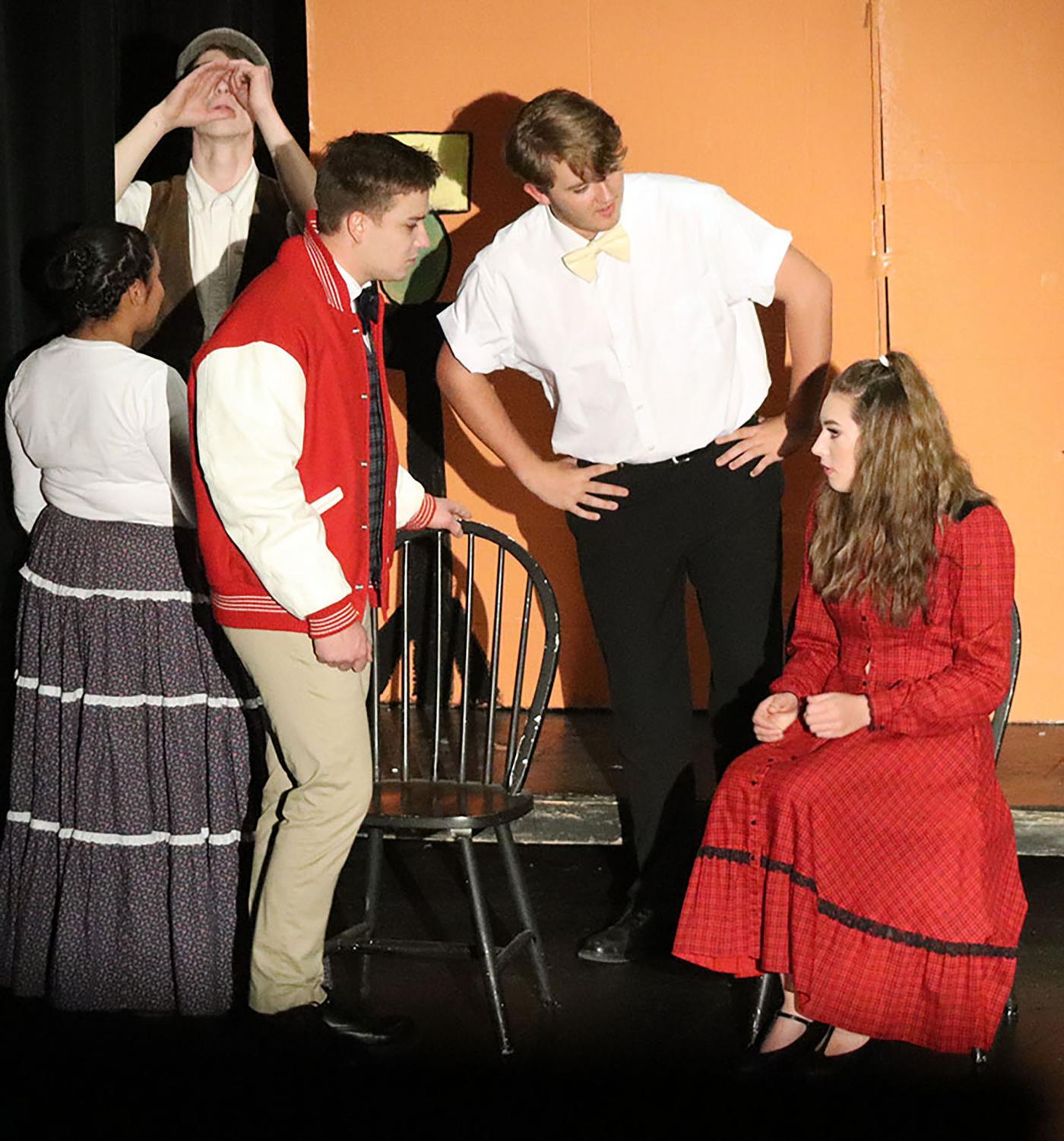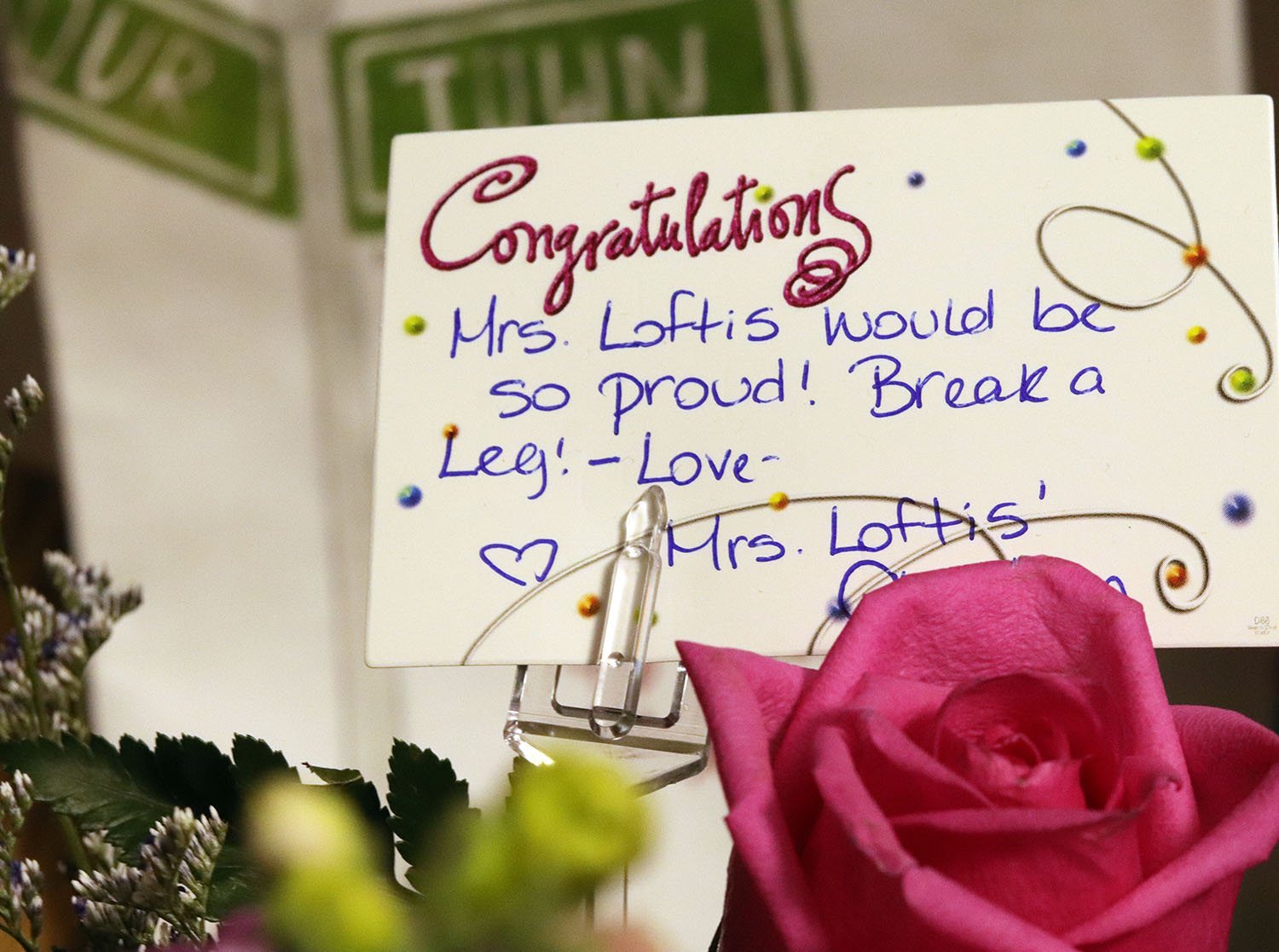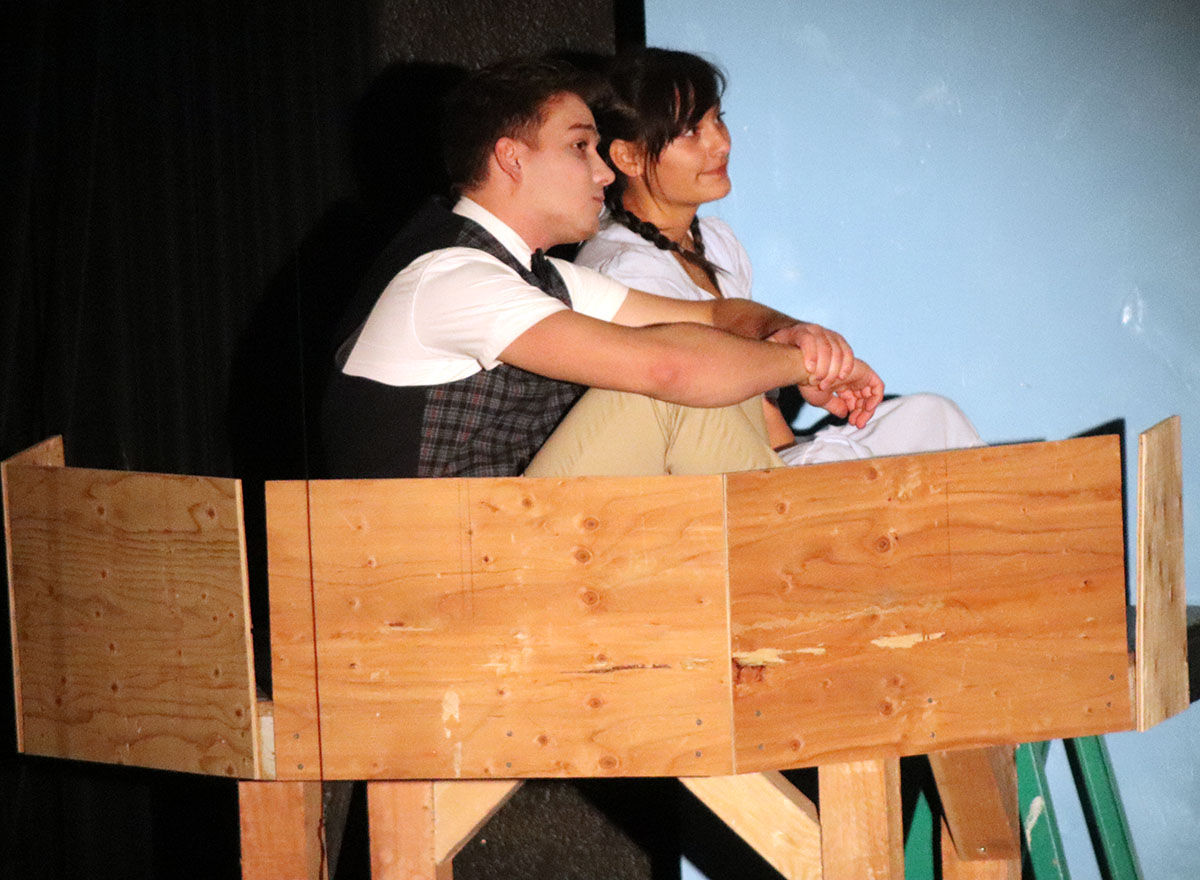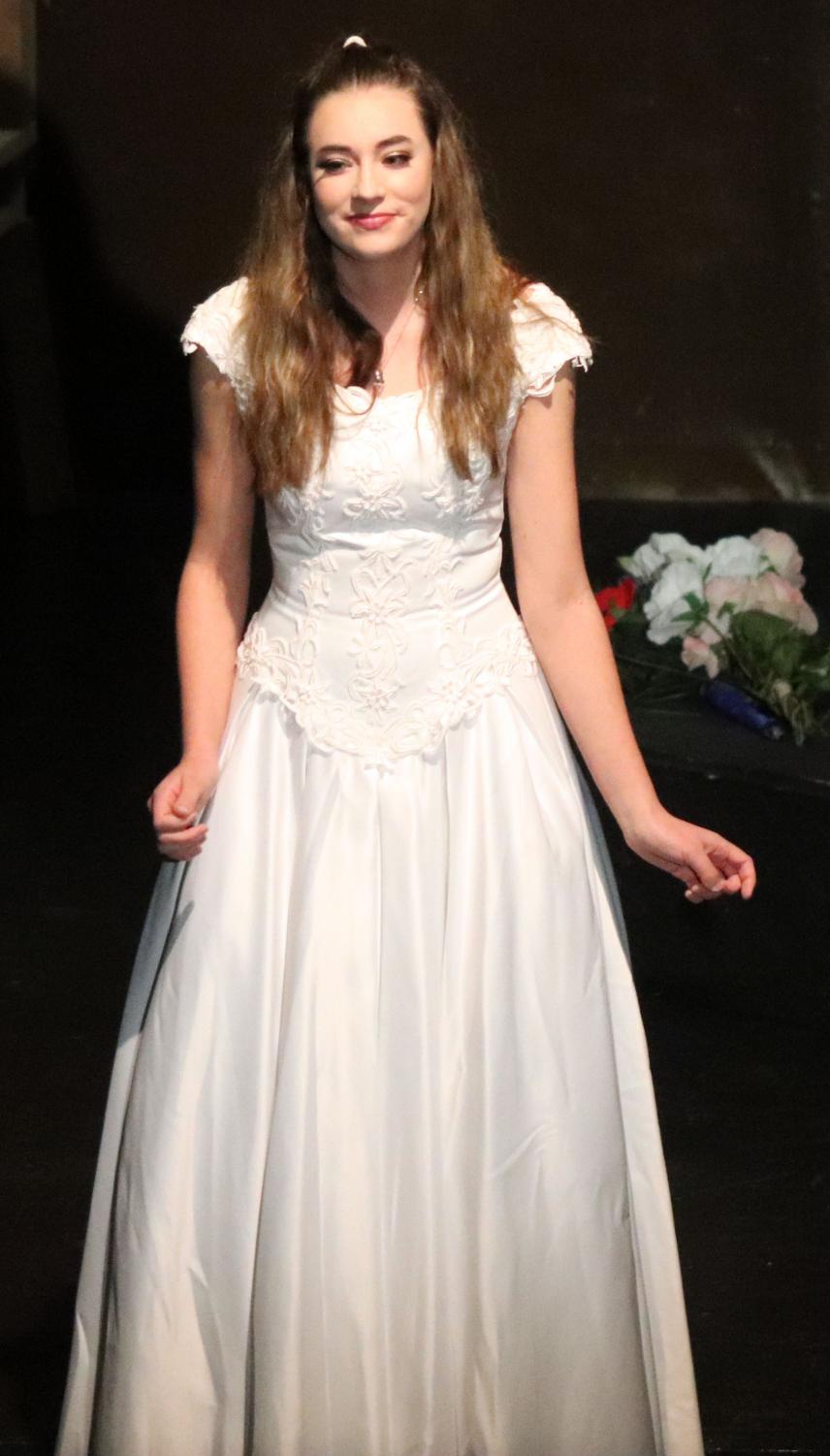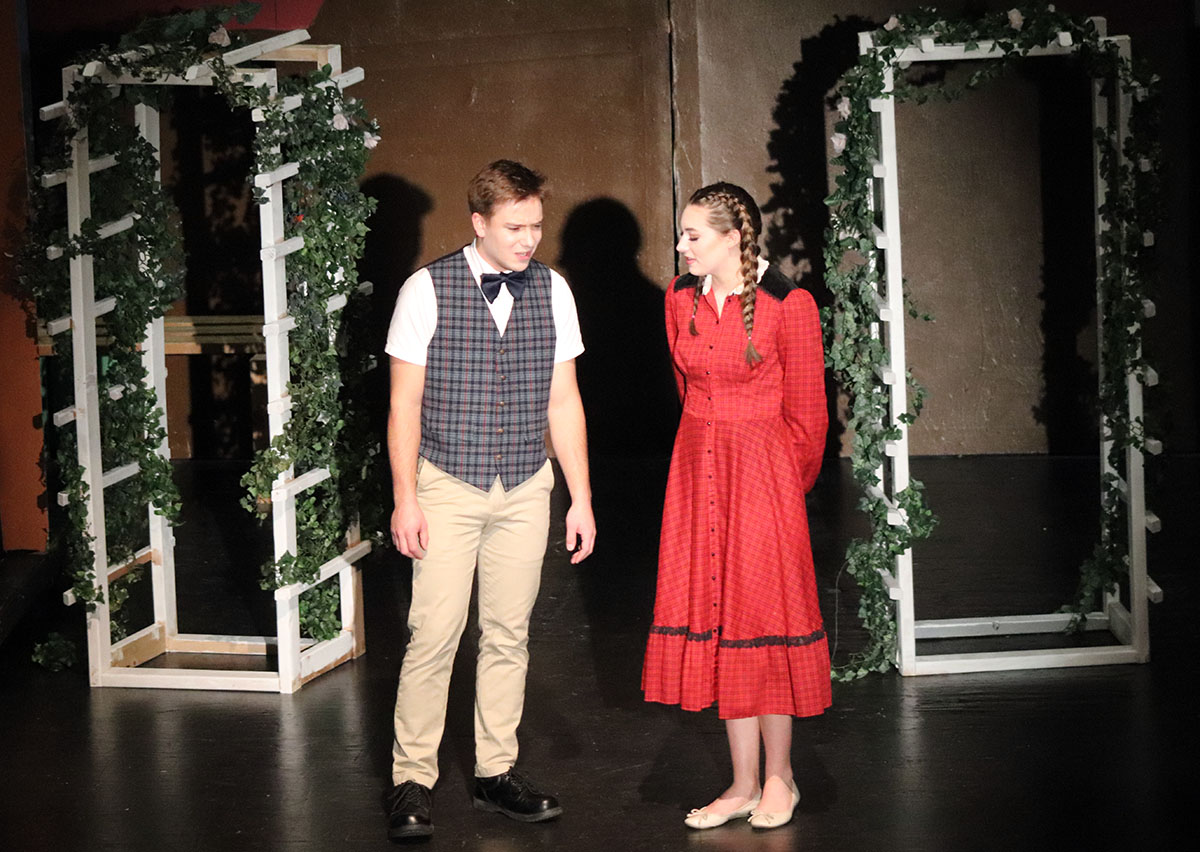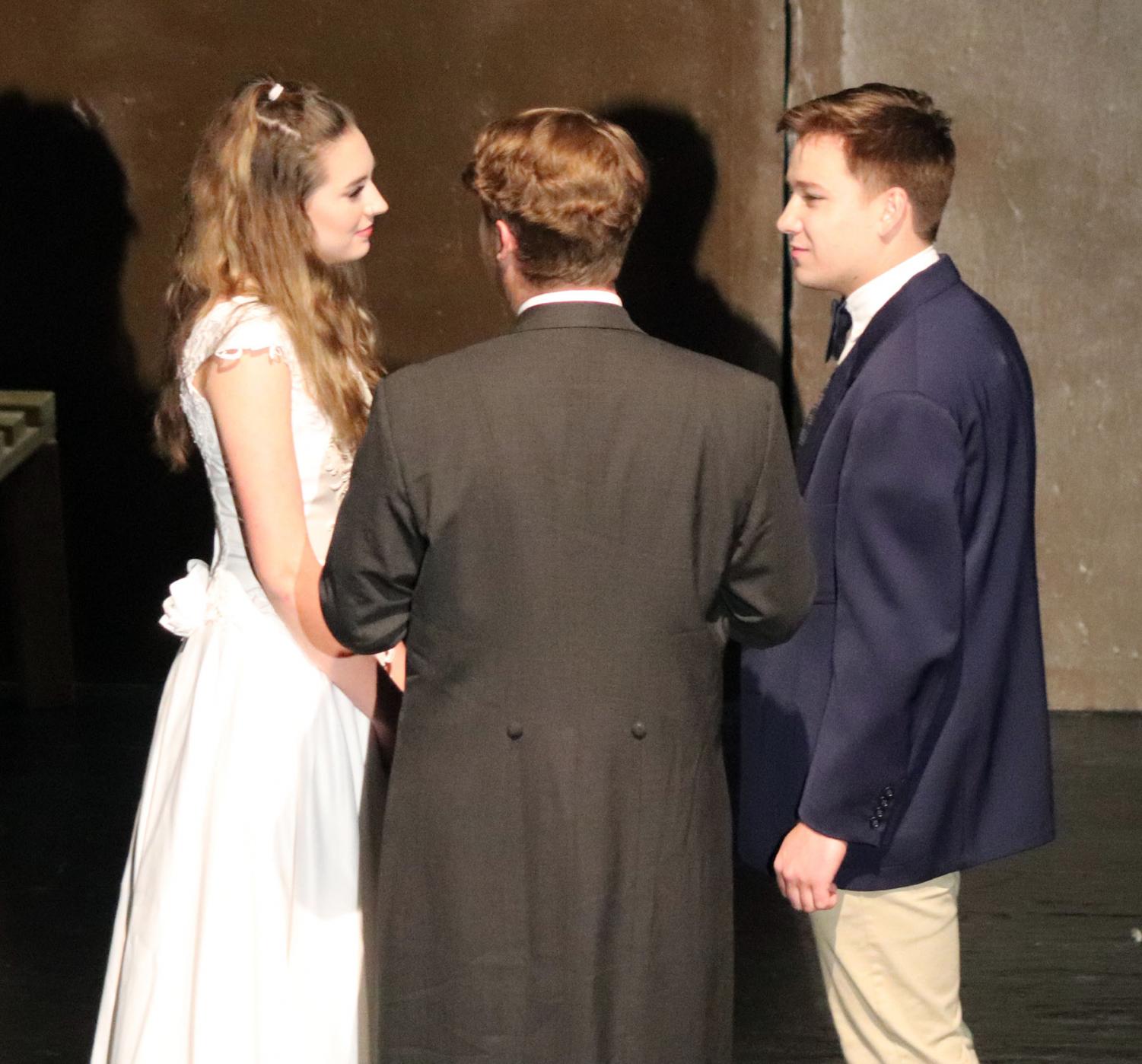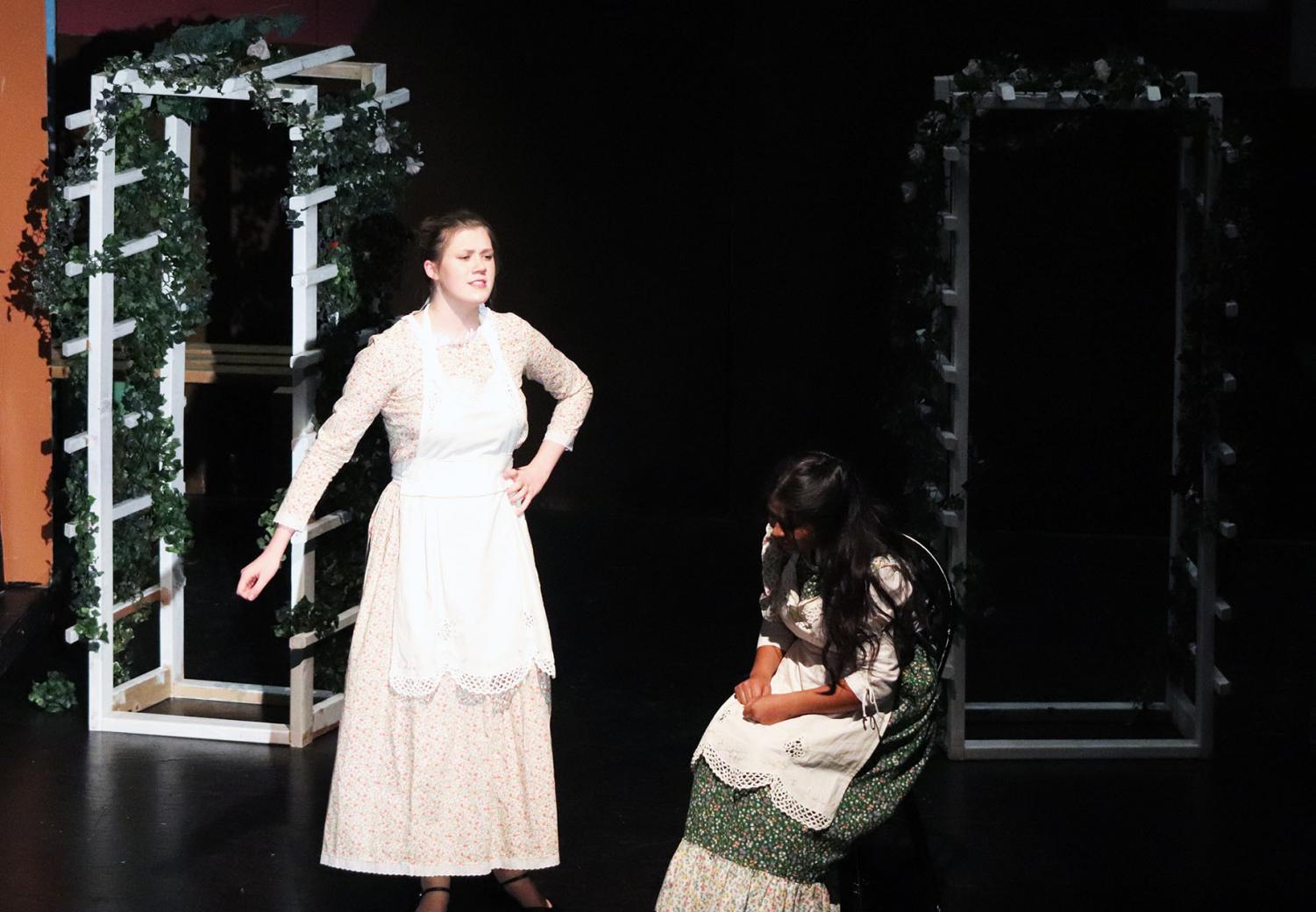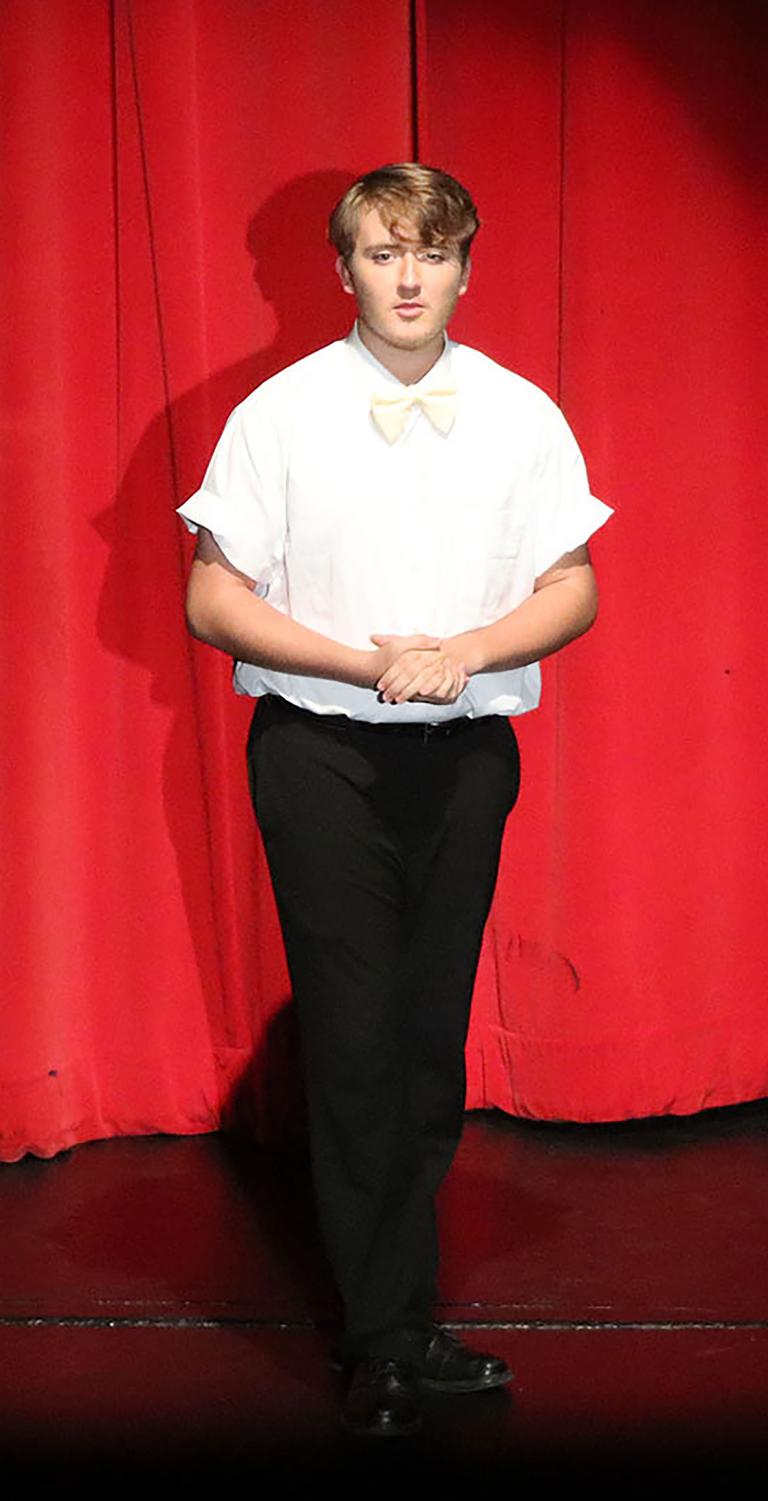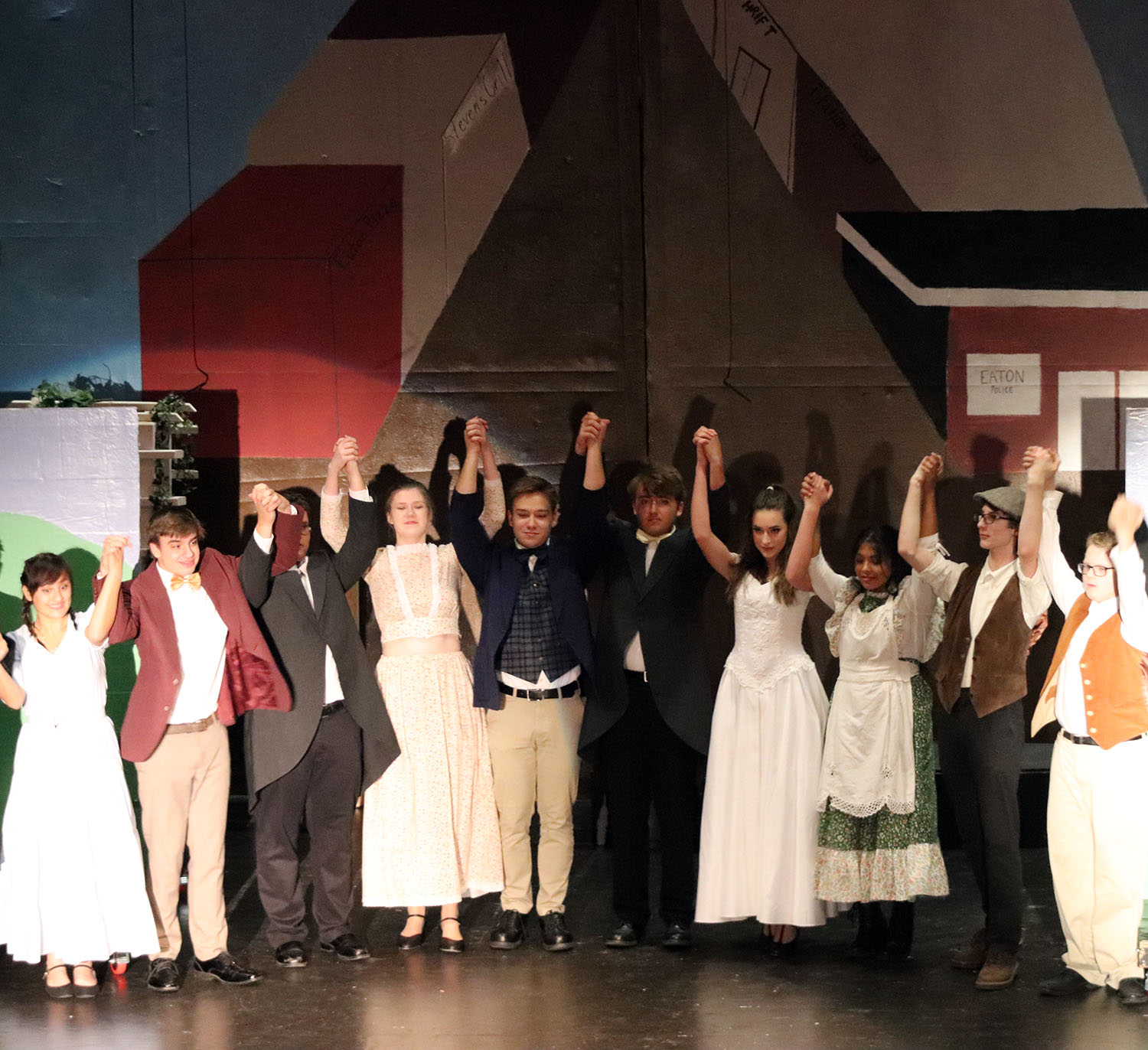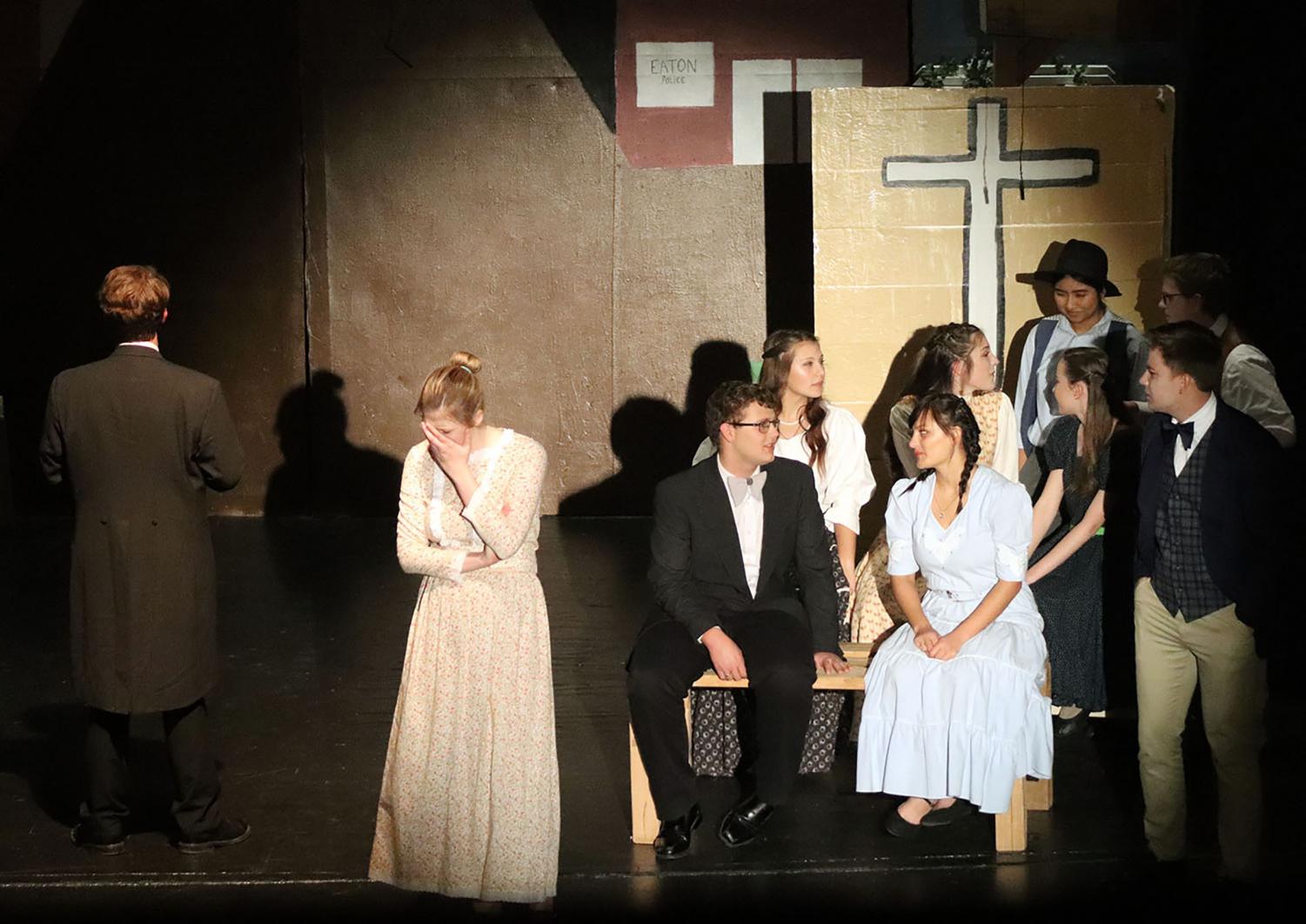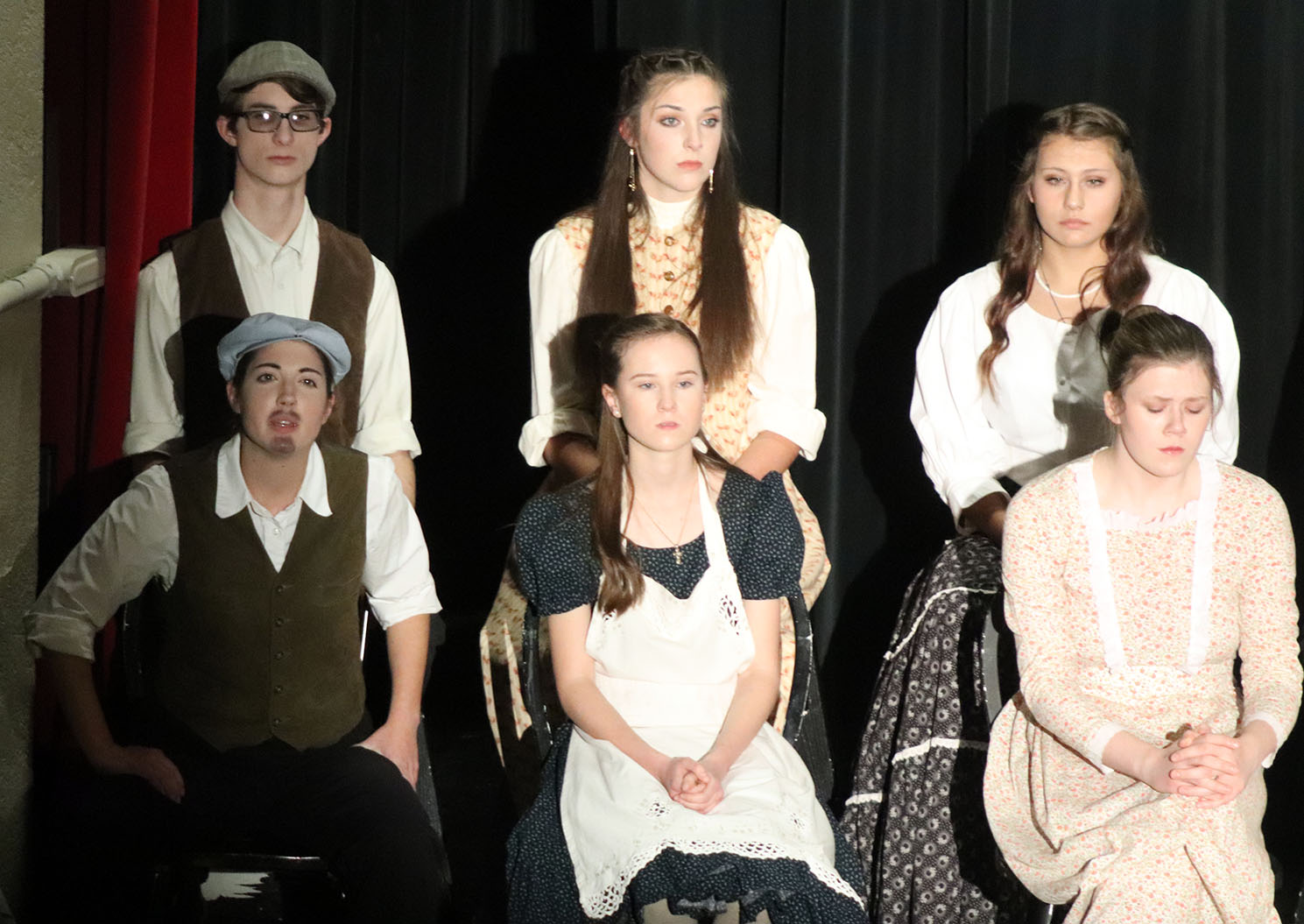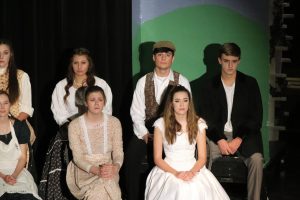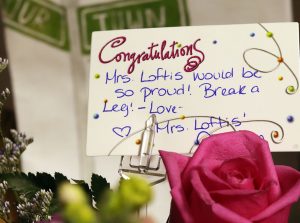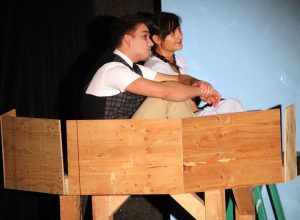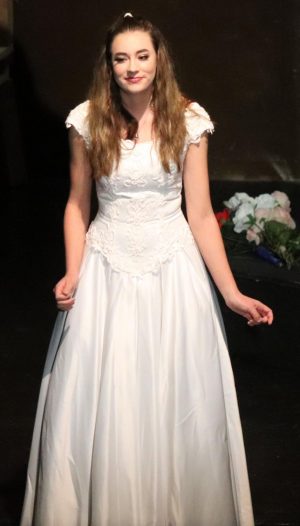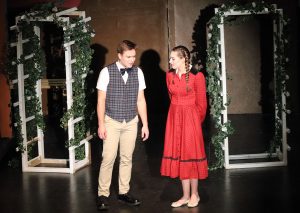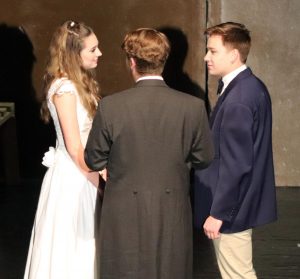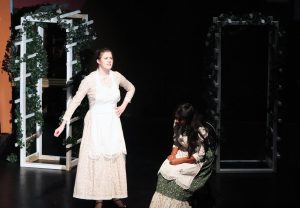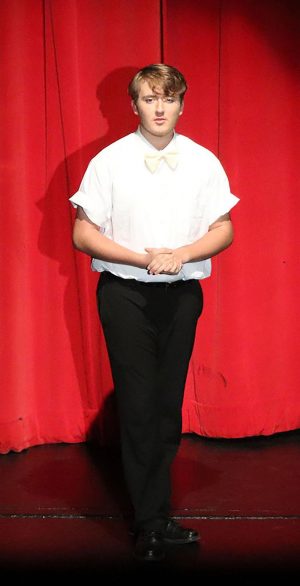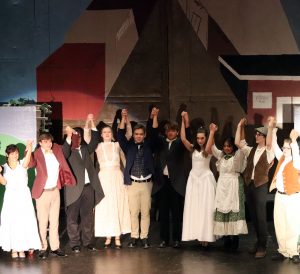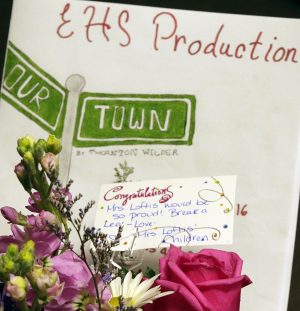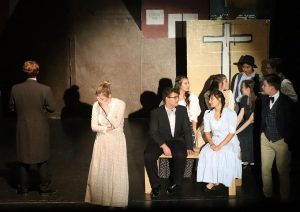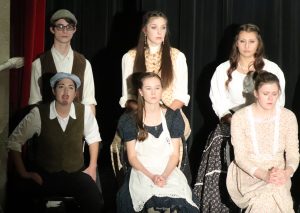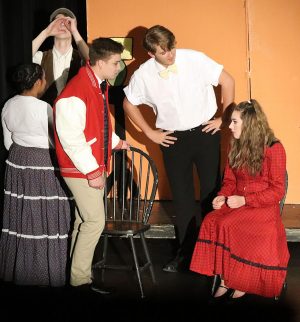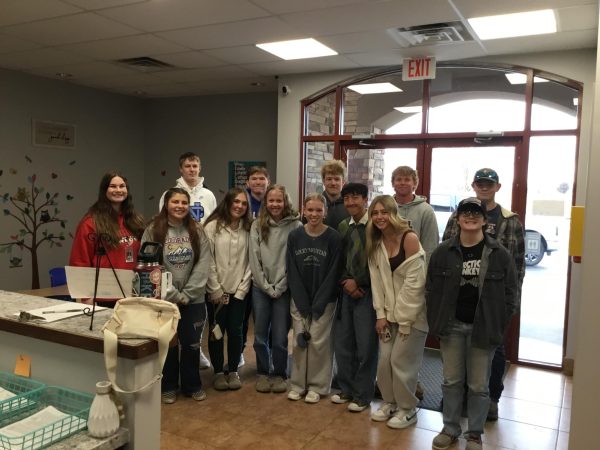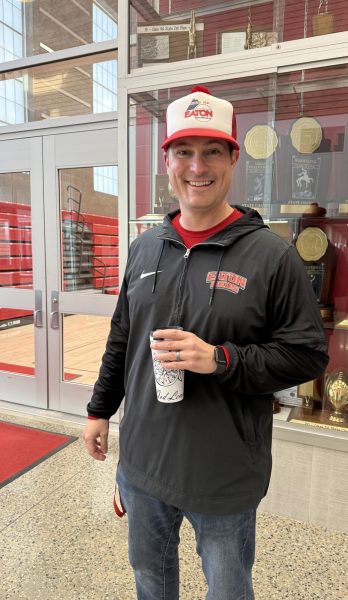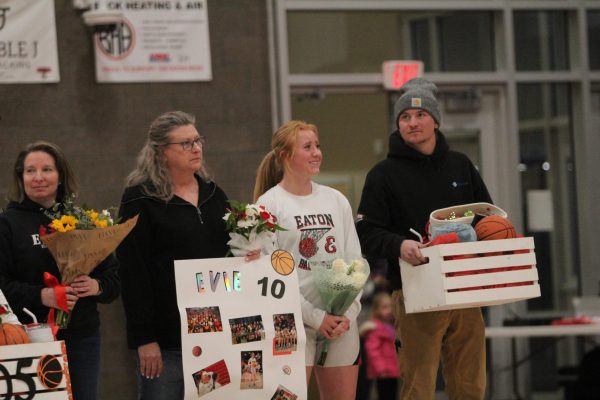Actors deliver in “Our Town”
Eaton’s production class took on the task of performing the beloved and difficult classic “Our Town”
The production class put on a very difficult and demanding play when they chose Thornton Wilder’s Our Town to present for the Eaton community members and students on November 13, 14, and 15 at 7 pm. This minimalistic play made the acting very heavy, forcing the actors to rely on their voices and actions, rather than props to portray the story. And the actors delivered. Our Town came off with very few mistakes, drew the audience in with its believable acting, and created an overall professional high school performance. Theatre teacher, Kendra Hixon, and the cast of Our Town dedicated the play to Eaton’s own Carol Loftis who passed away on July 10. Loftis was a sixth grade teacher at the middle school for over 30 years and was loved by so many of the staff and students in the district. Her family, who presented flowers to the cast on opening night, said she loved the play Our Town and “would be so proud!” to see the students put on the production.
The play opened with Colton Sell performing the lead role of the Stage Manager. He introduced the town of 1901 Grover’s Corner and a typical day in the lives of the Gibbs and Webb families. Sarah-Cate Ogden, as Mrs. Gibbs and Evan Messmer, her husband Dr. Gibbs, scurry around issuing off-to-school orders to their children, George and Rebecca, played by Everet Slaughenhaupt and Monique Anchondo. The Webb family, next door, is scurrying around as well, and Mrs. Webb, played by Liliana Lara, and Mr. Webb, Thomas Mongan, send their two children Wally, played by Trenton Smith, and Emily out the door to meet the Gibbs kids.
This minor event sets up the early-formed romance of Emily Webb, played by Katelyn LeClair in the main role, and George Gibbs, who end up marrying each other in the second act.
The theme and plot of the play were probably difficult to comprehend for students who have grown up in the special-effects era. The lack of props–just a living room set up, a garden arch, a backdrop of a street, and treehouses on both sides of the stage–forced students to engage their imaginations and suspend their understanding until much later in the plot. The actors had to mime actions such as making breakfast and putting on shoes at the door. With no soundtrack, no sound-effects, which usually captivate movie-going audiences, the actors were forced to engage the audience with believable dialogue and emotion.
Leclair and Slaughenhaupt did just this, delivering outstanding performances in the sequential scenes of George and Emily’s wedding and the pending birth of their child. This is the point where the plot takes a twist, and the audience discovers the rest of the story.
When Emily comes back to her own funeral, Leclair displayed great grief and passion, speaking to the frozen town members, all of whom remained in character, not blinking, not speaking, and not reacting. The Stage Manager wraps up the play with a lengthy monologue which Sell delivered without a single stutter. The period costumes, the hand painted sets, the effective lighting all helped make the play a big success on every level. The production class deserves praise for a very professional performance that is truly one to remember.
